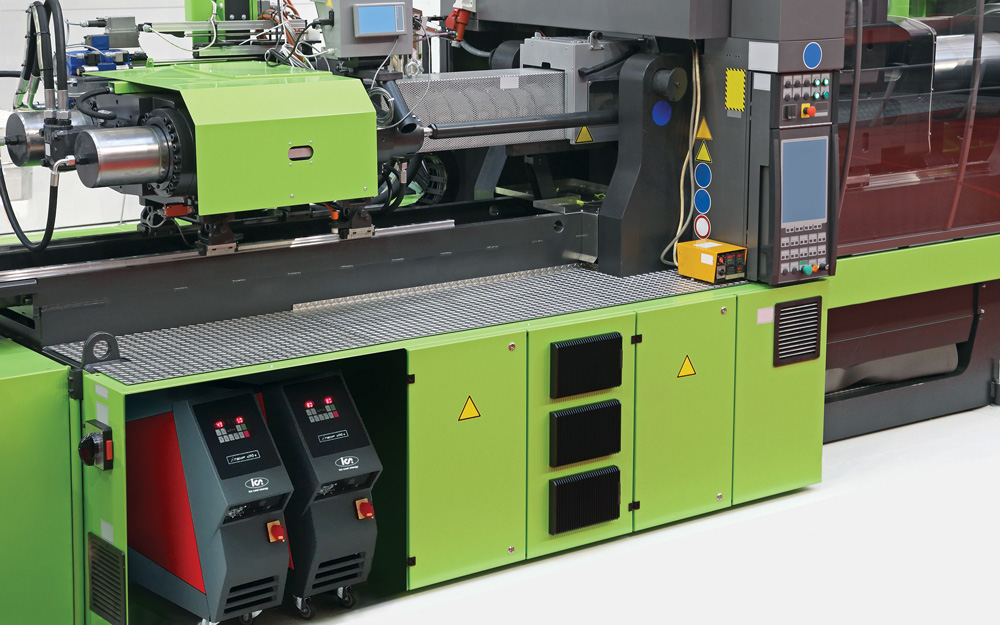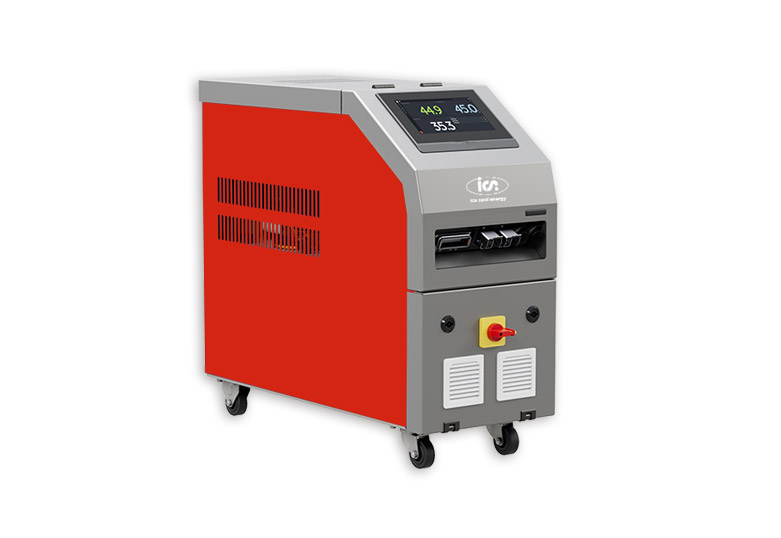Updated: February 8, 2017
Temperature control: the hidden secret for food manufacturers
Food and beverage manufacturing is one of the cornerstones of the UK economy, contributing £21.9bn a year. With high production volumes and ingredient costs, any product wastage as part of the production process rapidly adds up. Temperature control has a critical impact on product quality, so routinely overlooking its importance can leave manufacturers with many thousands of pounds of unusable product a year.
Precise temperature control is a vital element of the food production process, not just for achieving the correct ambient air temperature of the factory and storage areas, but as a part of the production process itself. Even the slightest temperature change can have a knock-on effect on batch production, so ignoring it can be a very expensive mistake.
One critical part of the equipment for food and drink manufacturers is the Temperature Control Unit (TCU). This is essential when the production process is heavily reliant on equipment such as jacketed vessels, which are key for a variety of different food sectors – from confectionary through to brewing.
In a typical scenario, the temperature of the heat transfer fluid that flows through the vessel jacket would be controlled by one TCU. Although this set-up appears simple, in reality it’s not quite so straightforward.
To put it into context, TCUs are often overlooked during the original production equipment specification. This means there’s little money left at the end of the purchasing process for temperature control equipment, as the bulk of the budget has been spent.
So, with little or no money left for temperature control, many manufacturers tend to either re-use pre-existing TCU equipment, or find that they are limited to low spec entry-level models to avoid spending any more.
The trouble with this strategy is that older or cheaper TCUs have more scope for error in delivering precise temperature control, so costs can spiral rapidly as a result.
A case in point
To put the issue into context, we were recently approached to solve a problem for a confectionary manufacturer. We found they were using an unreliable temperature control system that they had built themselves, and subsequently the jacketed vessels suffered from wide fluctuations in the temperature control.
Every time this happened, the batch risked failing a quality inspection as the end product was not correctly tempered within the necessary limits – wasting significant time and money, as well as being highly frustrating and demoralising for the production teams. However, the issue was simple and fast to resolve with the supply of a TCU retrofit package.
Dealing with downtime
Why, then, is the issue of inadequate TCU usage so widespread in the food processing industry? Perhaps the biggest reason is simply that companies are not fully aware of the benefits of including a new TCU as part of a wider investment in new equipment, despite the fact that the extra cost is minimal. In fact, with the right equipment and TCUs, there is no longer any need to accept downtime of up to 20% or more as a necessary evil.
The latest TCUs – which are often a fraction of the cost of the plant equipment itself – give manufacturers a much greater level of transparency into the specific temperature detail of each jacketed vessel. Crucially, the best TCUs can also provide a two-way communication between the operator and the equipment by being connected to computer networks, monitored remotely and if required, viewed on mobile devices.
Increasingly, the ability to deliver repeatable quality and traceability is essential. Today’s TCUs, such as the i-Temp Plus from ICS Cool Energy, can deliver the precise level of temperature control to consistently heat or cool the jacketed vessel (and therefore the product) to the optimum working temperature.
The application and recipe data can then be stored, saved and then set to control and deliver the same consistencies for all future batches. Intelligence is also built-in so it will make adjustments for changes in the ambient air and central factory cooling water temperatures. This means that a batch made in August will be the same quality as one made in January, despite the wide variances in ambient air temperature.
Full data transparency
For the supply chain, modern TCUs can also help those companies working as a tier one or tier two supplier to prove full temperature data transparency, as well as production efficiency and evidence of long-term reliability. Ultimately, it is demonstrable evidence that can be used to impress both existing and potential customers.
The latest TCUs also deliver much faster cycle times, ensuring that the correct temperatures are reached more quickly. Not only does this help increase production, it also minimises energy use. Finally, due to the two-way communication of the latest models, faults or error notice can be sent directly to the operator, allowing fast correction keeping downtime to an absolute minimum.
TCUs – More than an afterthought
As with all elements of the manufacturing world, there will always be new and more efficient ways of undertaking processes, and temperature control is no different. However, breaking away from the traditional mindset of viewing a TCU as an ‘add on’ could be the missing piece in the puzzle to finally achieving the production efficiencies and improvements food and beverage manufacturers are aiming to achieve from their investment in new production equipment.
Just a relatively small investment in the latest TCU technology at the front end has the potential to rapidly transform production performance, save on material wastage and downtime, and ultimately make a positive impact to the bottom line.
Related Articles

July 16, 2024
Is it time to replace your Temperature Control Unit?
Temperature control units (TCU) are crucial in maintaining the desired temperature in various manufacturing facilities. Like any appliance, temperature control units can show signs of...
Read More
July 4, 2024
ICS Cool Energy Enhances Customer Experience with New Customer Care Team
New dedicated team and user-friendly website to streamline customer support and enhance communication. In a significant step towards enhancing customer engagement and service efficiency, ICS...
Read More
June 27, 2024
Introducing i-Temp Compact eco.line – A new standard in energy efficient temperature control
We are proud to announce the expansion of our i-TEMP temperature control units (TCU) portfolio with the introduction of the eco.line series. The new i-TEMP...
Read More